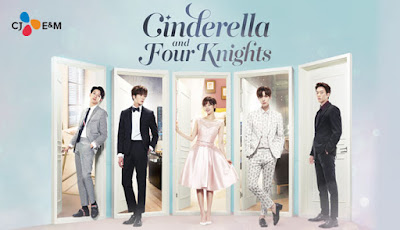Cinderella and The Four Knights
 |
| dramacrazy.com |
It is a South Korean drama series of 16 episodes based on a novel of the same title published in 2011. The fact that it has four male leads and one female lead makes it comparable to the likes of ‘Boys Over Flowers’ and ‘Heirs’. The drama is about four differently passionate young people, probable heirs to a conglomerate family of business men, who happen to live together in the Sky House but don’t get well with one another. Eun Ha-won, the Cinderella here, gets to stay with them in Sky House following certain rules set by the Chairman, working on missions to get these guys together as one family.
The characters are deep, emotional at the core. One is a kind hearted arrogant rebel, another a flamboyant playboy carrying deep wounds, another a gentle top singer-songwriter, and yet another a seemingly stoic yet sentimental bodyguard. The female lead is no damsel in distress, but she lets herself be protected by those who love her. I like the way they are deconstructed layer after layer, as the story progresses, and their authentic self-buried under the fakeness and arrogance is revealed. The story is sensible and believable. It has its highs and lows. There is enough seriousness and enough comic relief in between plot twists.









Comments
Post a Comment